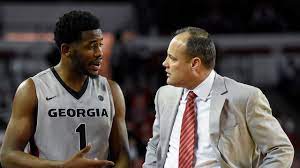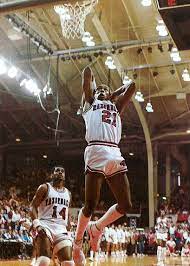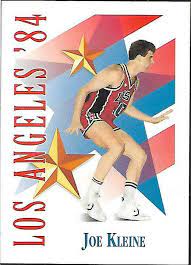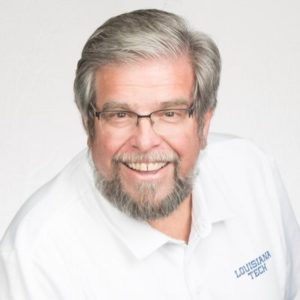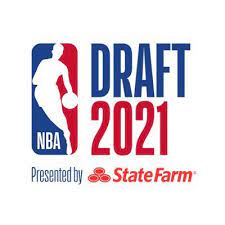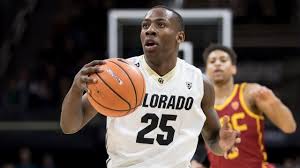Last spring Palm Beach Atlantic coach Dave Balza announced that he would be retiring from coaching after spending the past 8 years with the Sailfish. His career on the sidelines started with a bang in 1989 when he was a student manager for Michigan during their run to the the 1989 NCAA tourney title. Although it was Coach Andy Enfield who brought “Dunk City” to Ft. Myers, it is Balza who remains the winningest coach in school history with a record of 153-121 from 2002-2011. HoopsHD’s Jon Teitel got to chat with Coach Balza about winning an NCAA title and marrying a Spartan. Today is Coach Balza’s 52nd birthday so let us be the 1st to wish him a happy 1!
Take me though the magical 1989 NCAA tourney as a student manager for Michigan:
Just days before the tournament started, Coach Bill Frieder announced that he would become head coach at ASU, so athletic director Bo Schembechler fired Frieder and named assistant Steve Fisher as interim coach: what was it like going through that coaching change, and how was the team able to maintain its focus? I had an interesting piece in that. I was taping games off of the satellite onto VHS tapes and the only satellite was in Frieder’s office. It was 1AM and someone startled me by jiggling the handle of the door: it turned out to be Frieder. He told me he was afraid that I was Schembechler and was cleaning out his office! It was a big story at the time, but we were told not to comment on the situation. Someone called my roommate Rob Pelinka (who is now general manager of the Lakers) and said he was from Sports Illustrated and just looking for a comment but Rob refused to say anything: it turned out to be a prank by our teammate Loy Vaught! Fisher loosened the atmosphere and made some positional changes, which allowed our talent to take over.
Tourney MOP Glen Rice scored a combined 70 PTS in back-to-back wins over South Alabama/UNC: was it just 1 of those scenarios where every shot he put up that month seemed to go in because he was “in the zone”? Half the time it seemed like he was not even facing the basket and would just flip up a shot and it would go in! I have never seen anything like it.
Sean Higgins scored 14 PTS and made a put-back with 1 second left in a 2-PT win over conference foe Illinois: where does Higgins’ shot rank among the most clutch you have ever seen, and were you concerned that your team might not have anything left for the final? Illinois had beaten us twice that season, including at our place on Senior Night. Rice came into the locker room after that game and said that it was our last loss of the season. Higgins had a lot of moxie and could always put the ball in the basket. Fisher played Higgins at the end of the Final 4 game on a hunch and it just worked out well.
Rumeal Robinson made a pair of FT with 3 seconds left in a 1-PT OT win over Seton Hall: did you think that Rumeal was going to make both FT, and what did it mean to you to win the title? I did think that he was going to make them. As managers we spent a lot of time watching him make 100 FTs after practice every single day (after he had missed a pair earlier that season in a loss at Wisconsin). It meant a lot to everybody: we all stay in contact even today.
What are your memories of the 1990 NCAA tourney (Jeff Fryer scored 41 PTS including a tourney-record 11-15 3PM in 32 minutes in a 149-115 win by Loyola Marymount, which remains the highest scoring game in tourney history)? I remember the pre-game discussion among the coaching staff whether to run with them: it was the wrong decision to say the least! LMU was a special team playing for a special cause (after Hank Gathers’ death).
As an assistant coach at Cleveland State in 1993 your team went 15-1 in the regular season before a 28-PT loss to Illinois-Chicago in the conference tourney: what did it mean to you to win the regular season title, and how devastating was the conference tourney loss? It is very difficult to win conference titles: Michigan did not win a conference title from 1986-2012. At a big school you can get an at-large berth but at a small school like Cleveland State you cannot. It was crushing to be in that situation.
In 2002 you became head coach at Florida Gulf Coast: why did you decide to take the job, and how much pressure was there on you as the 1st head coach in school history? There was not a lot of pressure because nobody outside the school knew who we were: the school had only been founded a few years earlier. I had a good job as a head coach in the state of Indiana and had just been named conference COY but I had a lot of respect for the AD at FGCU. I went to visit the campus and realized that it would become a special job in the years ahead.
In 2007 your school made the leap from D-2 to D-1: what is the biggest difference between the 2 levels? There are many differences. I never thought that we would make the jump that quickly. In D-2 we were the haves but as a 1st-year D-1 program we were a have-not. We had to play guarantee games against Big 10 schools just to make some money to support all of our other programs. It is hard to sell a kid on coming to a school where you cannot even play in the postseason for the 1st couple of years.
You coached Beau Bauer (the 1st-ever 1st-team Academic All-American in school history): what role do you place on academics? I cannot say enough about that kid. We stress academics a lot and explain everyone’s role in it. When you are playing at an All-American level it is all about the kid.
In the spring of 2011 you were fired despite winning 4 of your final 5 games: were you surprised that they fired you, and how little job security do coaches have these days? I was definitely disappointed for a lot of reasons. We went through 3 presidents/3 athletic directors during the transition. Expectations in D-1 are very different than in D-2 but job security is very difficult at all levels.
The following month you were hired as coach at D-3 Bethany Lutheran College: why did you take the job? I took the job because it was a chance to meld my 2 passions of coaching basketball and being a Christian. We were picked 2nd in the league, which might have been a reach, but we had some good young kids.
You are a Michigan grad who married a Michigan State alum: how were you able to make that work?! I always joke with her that it took her a little while to figure it out…because after college she went to grad school at Michigan! Our favorite time of the year is the day of the Michigan-Michigan State football game: it is a neat little bond we share.
When people look back on your career, how do you want to be remembered the most? I hope they remember the way we started it: I handed out t-shirts around campus that said “Building a 1st-class tradition.” Over the next century, I hope they realize that we brought in good people who worked their tails off to do things the right way.


